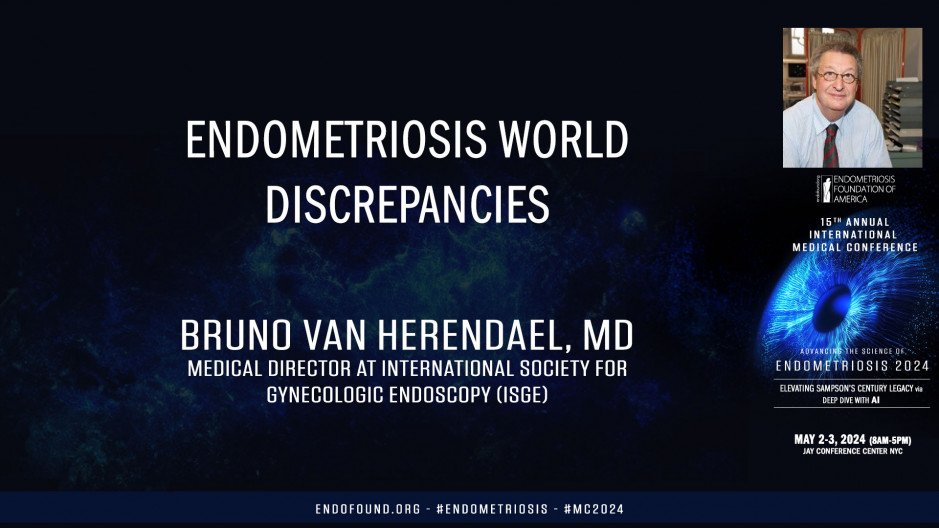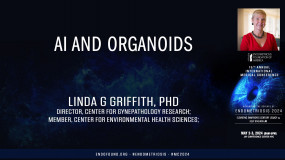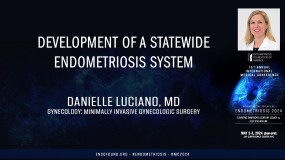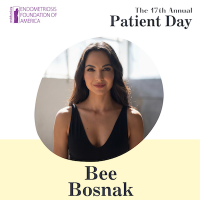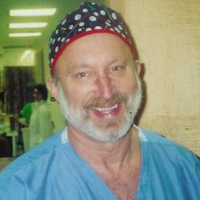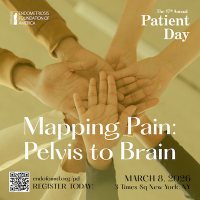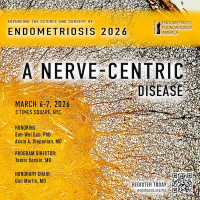International Medical Conference
Endometriosis 2024:
Elevating Sampson’s Century Legacy via
Deep Dive with AI
For the benefit of Endometriosis Foundation of America (EndoFound)
May 2-3, 2024 - JAY CENTER (Paris Room) - NYC
So all the authors, we don't have any conflicts of interest. So I would like to present you with this we saw already this morning, and that is Samsung 1940, right? The viability of this theory is of secondary importance to me as compared with the pleasure increase of knowledge of this and kindred subject, which I have gained in the studies and the resulting more intelligent treatment of patients who have bearing on endometriosis. And then there's a sentence that you really have to keep in mind because that is actually, there are many other unsolved problems associated with a pathogenic pathogenesis and life history of end materials of all time. And that is actually where we have to strive for if we look worldwide. So what actually did happen since 1940, let's go, I'll just give you a short what I have witnessed. So I was in South Africa as a senior resident in 74.
We did Laparotomies, we did a lot of laparotomies and we didn't find any endometriosis. So cold. That means that we didn't look for endometriosis. Probably when I came back to Belgium as a senior resident and a research fellow. Then there was my mentor, professor Brons, who was very interested in endometriosis. And we had at the gyne physiology lab, actually I was trained and I looked at cells and I looked through the microscope and through transmission and the scanning electron microscope working on the human membrane. And you'll see that I was in good company. I had these guys like Philip NINGs, my senior and I think junior or whatever. And so these guys stayed at the university and actually they did what they did and they did a very good job. When I came back to intra, this was strange, the department as such, we were four of us at the public hospital.
We started with these laparoscopic sterilization and we performed quite a lot of them. But we found that about 60% of our patients never complained about endometriosis, but we had visual lesions of endometriosis. And when send my talk to Dan, he told me I would like, did you write it up? No. At that time we did not write it up. We actually presented that to our society, but they didn't get the talks. And so he found when he looked through his, that he got about 34.6% of patients without any complaints. So what is the turning point when, well, I became a public servant and first as the head of the Ghana surgery unit in the city of Antwerp about, at this moment in time, about half a million people. And later as head of the department, we got big problems because we saw a lot of endometriosis, specifically in one of the hospitals within the popular part of the city where we treated a lot of migrants and we mostly Africans.
But when I was then professor in Italy, I got the same thing. But most of the patients were actually Italian. So there was not that big of a difference if you see that. But then when we started to operate in Cameroon in, and there's a very sophisticated endoscopic center of Professor Kaia of the University of Young day one. And so, well, we got so much endometriosis that we actually in some instances had to go back to laparotomy because we could not clear it in a normal time when we did it laparoscopically. And so we had to organize to train the people there. We really have to organize trips with people like adult shevin from Boston also and from Iran and other people to train the people there in endometriosis. Then oops, the video is gone. Okay, okay. Well, in June 23 in Kinshasa, there was a young female poet though, well na, okay, sorry.
And so she made this poet about Mama Sarah. So indicating that actually there was a lot of, especially in these particular cultures, that people actually didn't understand why you could have endometriosis. So although she had all the symptoms that we discussed today, actually there was a lot of incomprehension. And so actually there were pointing the fingers to these patients and actually costing them out of their, sorry, because I had a video here, but it disappeared. So that's, and so then this year in Nairobi with Yamal Patel, our IG board member and Jew who is the secretary of the Pan-African Society of Endometriosis, we operate again on a lot of endometriosis. And this is a center where actually it is a very sophisticated center, both ultrasound and endoscopy, much better than what I've seen in lots of European cities and even here in the States. So then what was that conclusion actually?
Well, the conclusion actually, when we talked it over and we had a teleconference to see how we also with our Indian people, and I must say the Indian, we got men, Agaral, who is the secretary of ISG, she taught ya until 15 years ago in India. We thought that endometriosis was only for the high cost and not for the lower. But nowadays they got the same problems as we've seen in Africa and South America. They got enormous amount of endometriosis. And so well actually, when we then looked at that and also asking friends like Lona and Maurizio, Aubrey from South Africa, actually what we saw, there's not that much this difference in between the countries and every single country. We have very sophisticated units be university units or private units that treat endometriosis surgically. But the problem is, and the previous speaker, professor Luciano told us, well, if you can manage to get a good, let's say a good politics, yes, to treat endometriosis, that is actually what it's all about.
Because, well, we actually have a problem internationally also that there is no guidelines for treating these patients for looking at the diagnosis. And so that is a problem because that delays, of course, it delays our diagnosis for endometriosis. We in Kinshasa, in the democratic republic, we were able to mobilize people in the parliament. Also the same in different countries in Europe, of course in the UK and in France especially, where now there are projects of law. So what is that? If we look at the evolution, when we see more and more very severe cases, what did we not see or do? Why and how did this disease progress so quickly that to become a major debilitating disease in women, is surgery actually the method of choice to tackle the problem? And what measures do we have to take? Well, we did not realize the fact that we are seeing actually maybe just the tip of the iceberg.
If the symptomatic disease such as one in every 10 women, well, we know that at least half 54 to six out of 10 have subclinical endometriosis. That means cells that well in principle, what we think should not be there. And is that so? Well, that is what people like Jack and his team try to find out. And we did not open our ears enough for specific complaints of the typical things to heavy menstruation, to pain from menstruation, mental distress caused by the problem, and that all these delayed the diagnosis. We did not push the awareness of the above symptoms at the level of the secondary schools enough, especially like in India, in Africa and in South America and most of the countries. We did rely too much on surgery to solve the problems instead of find a solution to diagnose a disease at an earlier stage.
And so why did that disease then progress so quickly if you reject and now these things are coming out? There is about that. I looked in the literature about 30 to 40 papers in specific very important journals that actually stress on environmental pollutants. And this could of course explain the exponential increase that we see in specific countries. And for example, like you saw on my slides previously that in a specific part, at a peripheral hospital of University of va, which was extremely polluted, the south of Milan, we had enormous cases of endometriosis where in the north to the Swiss border. We had less at that time. So that's years and years ago. The problem is that of course, if we delay that too much and well being a progressive accumulation of things, it leaves the disease at time to further stages and to get into further stages and cause us technical difficulties, like I said, that we encountered in Cameroon where we had to go back to laparotomy, which was a little bit of a problem there.
Then we did try exclusively, in most cases on surgery to tackle the problem. And so we did not actually, and that's again the sentence that come back there. Many other solve problems associated with the pathogenesis and the live history of endometriosis. That is what we have to find out. And so the problem being, of course, it's a women's disease and actually it's a benign disease. And so the research cited, except in specific cases like present here, Philip and Jacque, the true research study well started to later, much later than in other parts, fields of medicine. And so that is another cause and what measures could we take? And the example has been given by the previous speaker. We have to push in time diagnosis, involve patients group to the maximum, push endometriosis awareness in high school, make governments and international institutions even more aware of the problems, focusing on the social and the financial consequences and to make primary care professionals aware of it.
And that is maybe, I was touched by the Linda Teash last week in Antwerp where she told me that after leaving university, she set up in the town of a system where actually they involve the primary physicians, nurses so that they have an awareness on what is going on. And then we have to bring, and here we come back to ai. I think we have to bring as many tools as possible to get a timely diagnosis of the disease and using techniques that are less invasive because we are dealing with patients that starts having their menses. And so we have to really be as less invasive as possible, but also financially we have to make sure that we can pay the things. So we have to go for biological biochemical markers, if that's at all possible. We have to find them. And especially we have to find ultrasound, more sophisticated ultrasound, that ultrasound.
Nowadays we can do nearly everything. Just last week we had the guys from Luhan, from the Musa Theta to talk about the niches. And we have ai, it's easier for ultrasound to get AI aligned. They use it already in MRI and in radiology because you can put in an awful lot of, let's say, diagnostic ultrasounds in that machine. And so the AI can make more or less come back to a diagnosis. And we have to push fundamental research that is also pointed out by the previous speaker. We have to work together to actually to do this and financially for sure, and in as many institutions as possible. But don't forget the local level on that. Oops. To create international structures. I think that all my, actually all the, okay, there's gone. Sorry. This was what we did. We tried to, there was a photo of one on image of one of the articles that we published to in the European Journal to stratify the diagnosis, the reporting, sorry, the reporting of endometriosis.
So we stratify that and we will bring that through IG in the different countries. Then we have of course published a lot and like York also present here, we published in our own journal on the engine and on other methods of reporting endometriosis. What we've done, we are now setting up is the sono mix, which is actually a, well, we teach advanced ultrasound help with iron in combination with minimal invasive gynecological surgery so that we can actually come to the diagnosis as quickly as possible and then actually try and operate well patients that are not that yet in the stages where it's nearly impossible to do that so well. This was from Nelson Mandela. His head was there too. I think that we have to try and move from the treatment to preventive medicine as much as possible so that the treatment actually will get well, the disease in an early stage so that we can work on that. And what Mandela said and living in South Africa when he was still in prison, he made an impression on me. Everything's impossible until you make it happen. Thank you for your attention.



